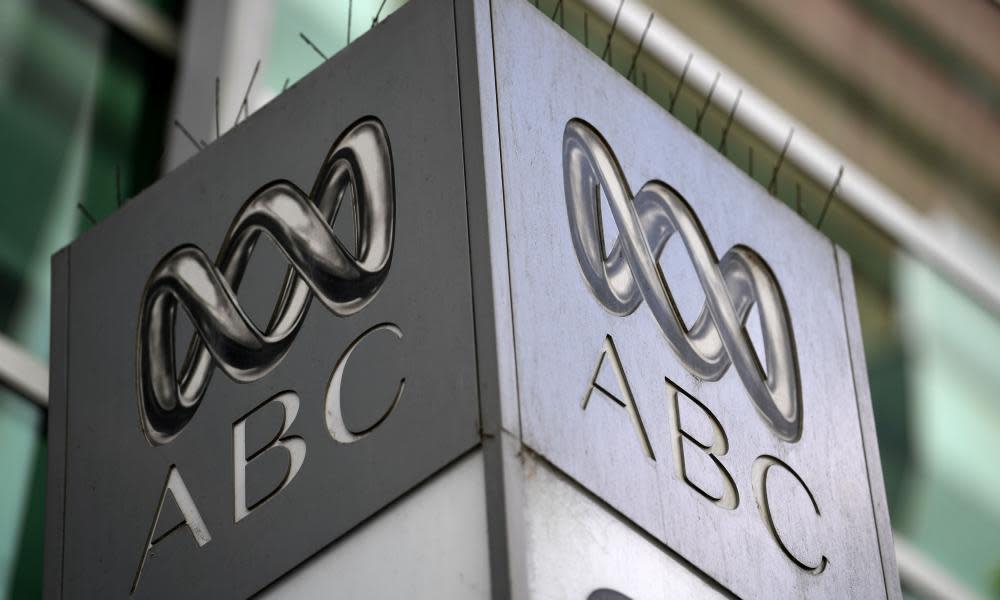ABC and SBS online news and hit shows not hurting commercial media, panel rules

ABC and SBS are not disrupting commercial media by providing free online news and catch-up TV and should be given more long-term funding certainty, an expert panel appointed by the government has found.
The communications minister, Mitch Fifield, established an inquiry into the competitive neutrality of the public broadcasters earlier this year after complaints by News Corp, Fairfax, Foxtel and the commercial broadcasters that they were crowding them out.
The panel not only rejected the complaints from commercial media but recommended that government give the national broadcasters more long-term funding certainty along the lines of the UK funding of the BBC.
The free-to-air broadcasters told the inquiry the SBS unfairly competed with them by buying hit series like The Handmaid’s Tale, Nine’s streaming service Stan was concerned that SBS On Demand undermined its subscription model by providing streaming services for free and Fairfax Media and News Corp Australia were upset about the free news services offered online by SBS and the ABC.
But the expert panel of economist Robert Kerr, commercial TV lobbyist Julie Flynn and former ABC TV executive and producer Sandra Levy found that ABC and SBS were not causing “significant distortions to the competitive process beyond the public interest”, in a report handed down on Wednesday.
They said the national broadcasters were established and funded to provide free services, including digital services. “So long as they operate in line with their charters they are operating in the public interest as defined by their statutes,” the report said.
“The national broadcasters have adapted to the challenge of change by extending the range and type of their services, taking full advantage of market developments and technological innovation, to the benefit of the public.
“In order to comply with their charters, the national broadcasters seek to maximise their reach by being significant providers of content across all platforms. Their capacity to do so is limited by their budgets.”
Rupert Murdoch’s Australian outlets had campaigned hard for the inquiry, and were joined by the former Fairfax chief executive Greg Hywood in claiming that the ABC and SBS were making it harder for them to make money.
The Australian lined up Australia’s media giants to complain about the ABC cutting their grass by operating in the digital space.
But the panel rejected most of the complaints, finding Google and Facebook were far bigger threats than the ABC and the SBS and recommending that they be more open about their competitive activities.
“The panel considers that the national broadcasters should be able to adapt to new market opportunities in the public interest,” the report said. “However, choice will be limited by a finite budget.
“The panel notes that the amount of money being generated by SBS through advertising revenue represents a small percentage of total television advertising, and therefore, is not considered material.
“Furthermore, following the efficiency review of 2014, the SBS budget was cut and the government stated that SBS should make up part of the shortfall through advertising.”
The inquiry received a total of 6,839 submissions from members of the public, commercial media, industry stakeholders and the national broadcasters themselves.
Free TV, the lobby group representing the TV networks, said it was disappointed the panel did not recommend any specific changes and said it did not give “sufficient weight to the evidence provided by the commercial sector”.
Labor’s communications spokeswoman, Michelle Rowland, said the inquiry was just a “fishing expedition” commissioned as part of a backroom deal with Pauline Hanson to pass the media reforms.
“This Liberal fishing expedition splashed half a million dollars of taxpayer funds to establish what the ABC and SBS have said all along: The national broadcasters are operating in a manner consistent with the general principles of competitive neutrality,” Rowland said.
“Australians trust and value the ABC and SBS and should not have to foot the bill for Mitch Fifield and Pauline Hanson’s vendetta against public broadcasting.”

 Yahoo News
Yahoo News 
